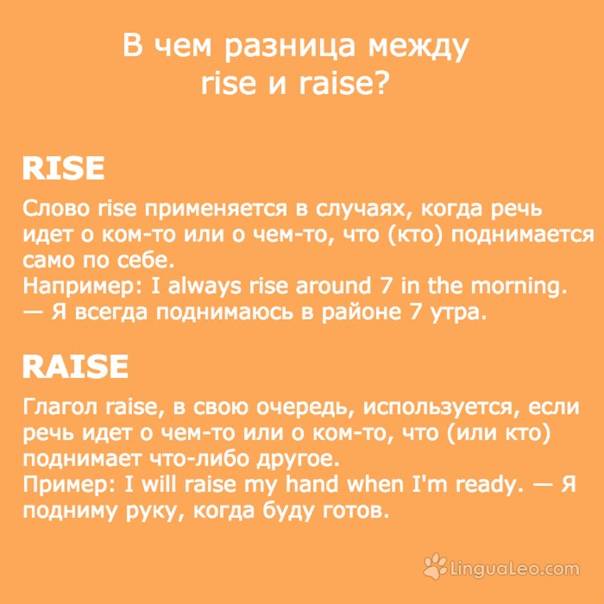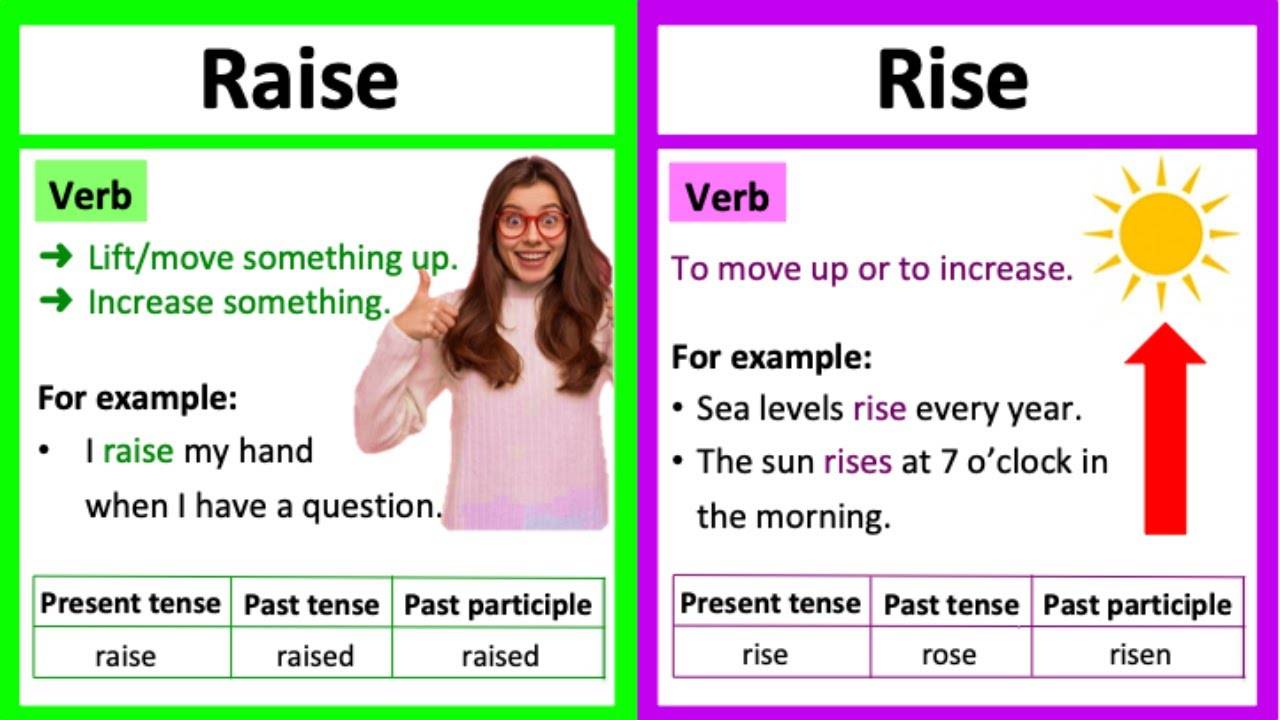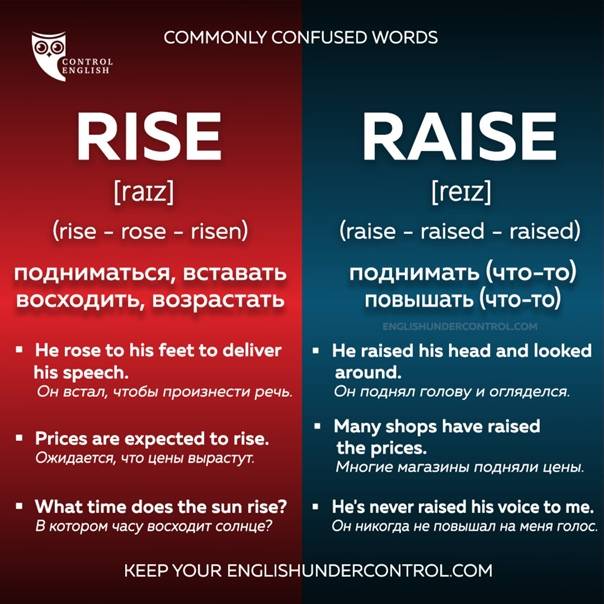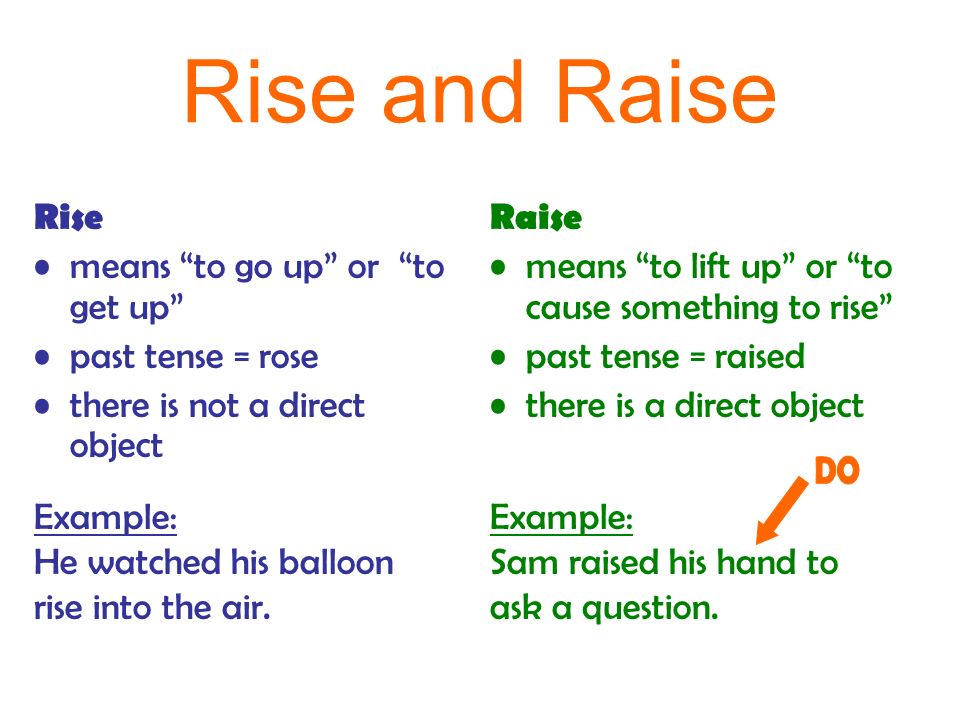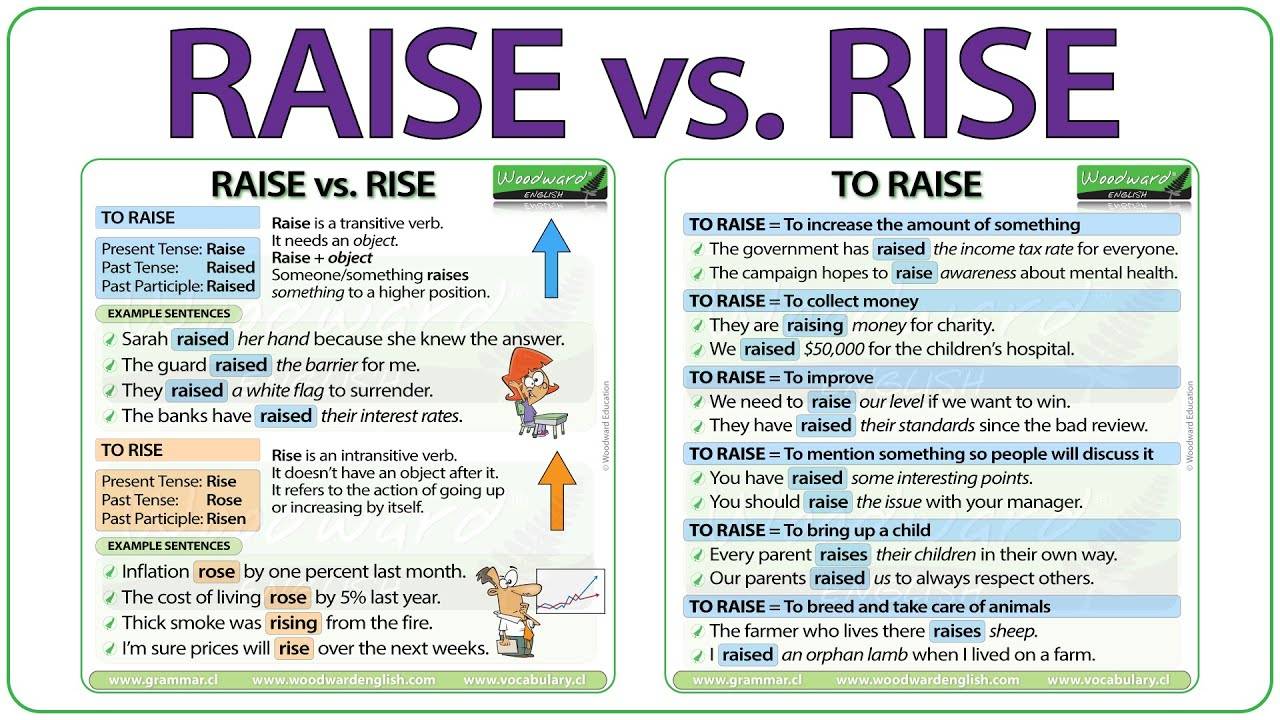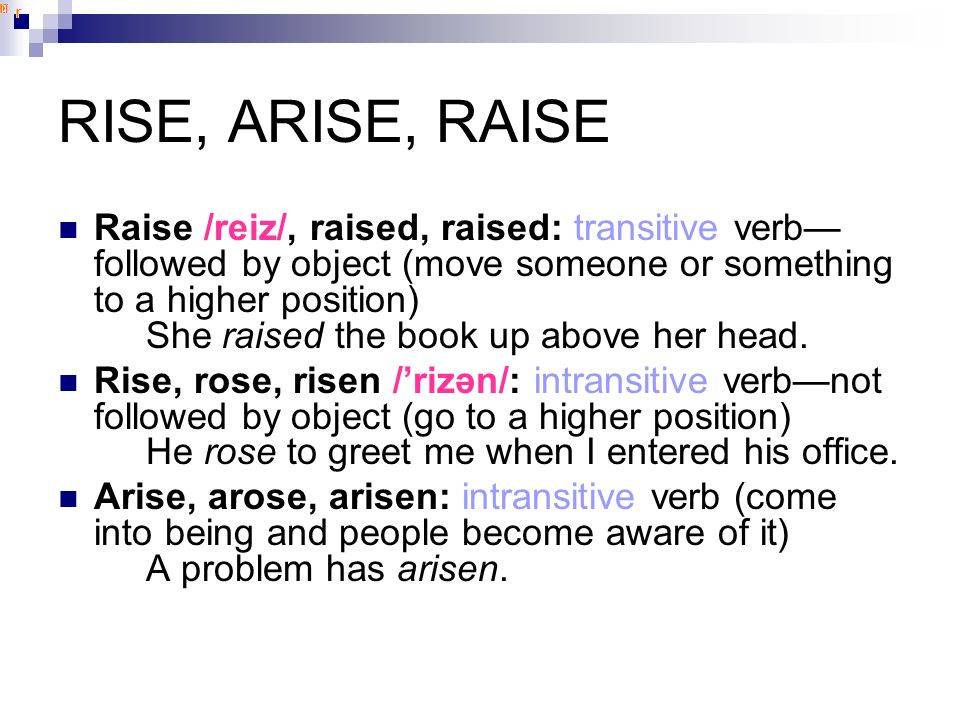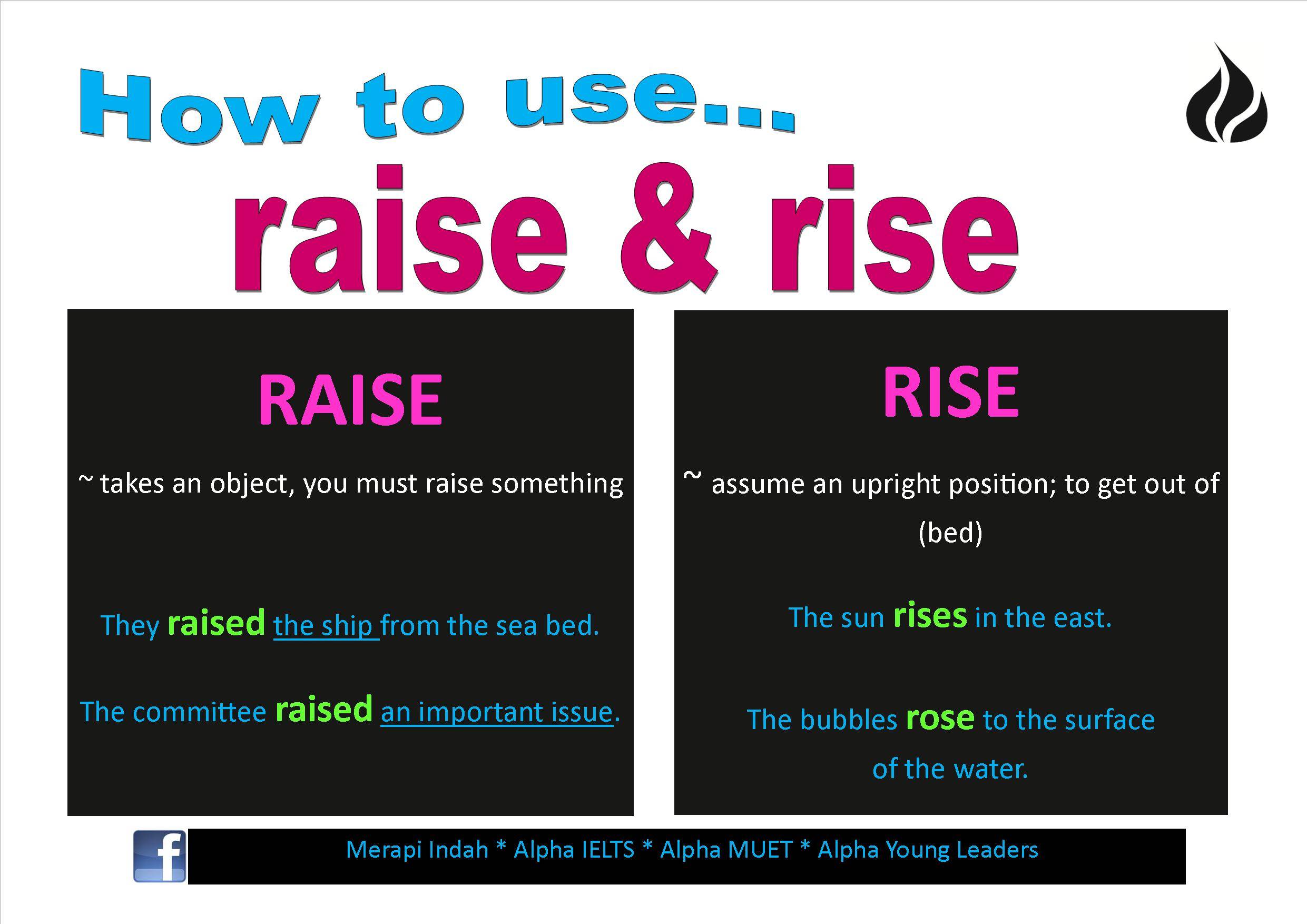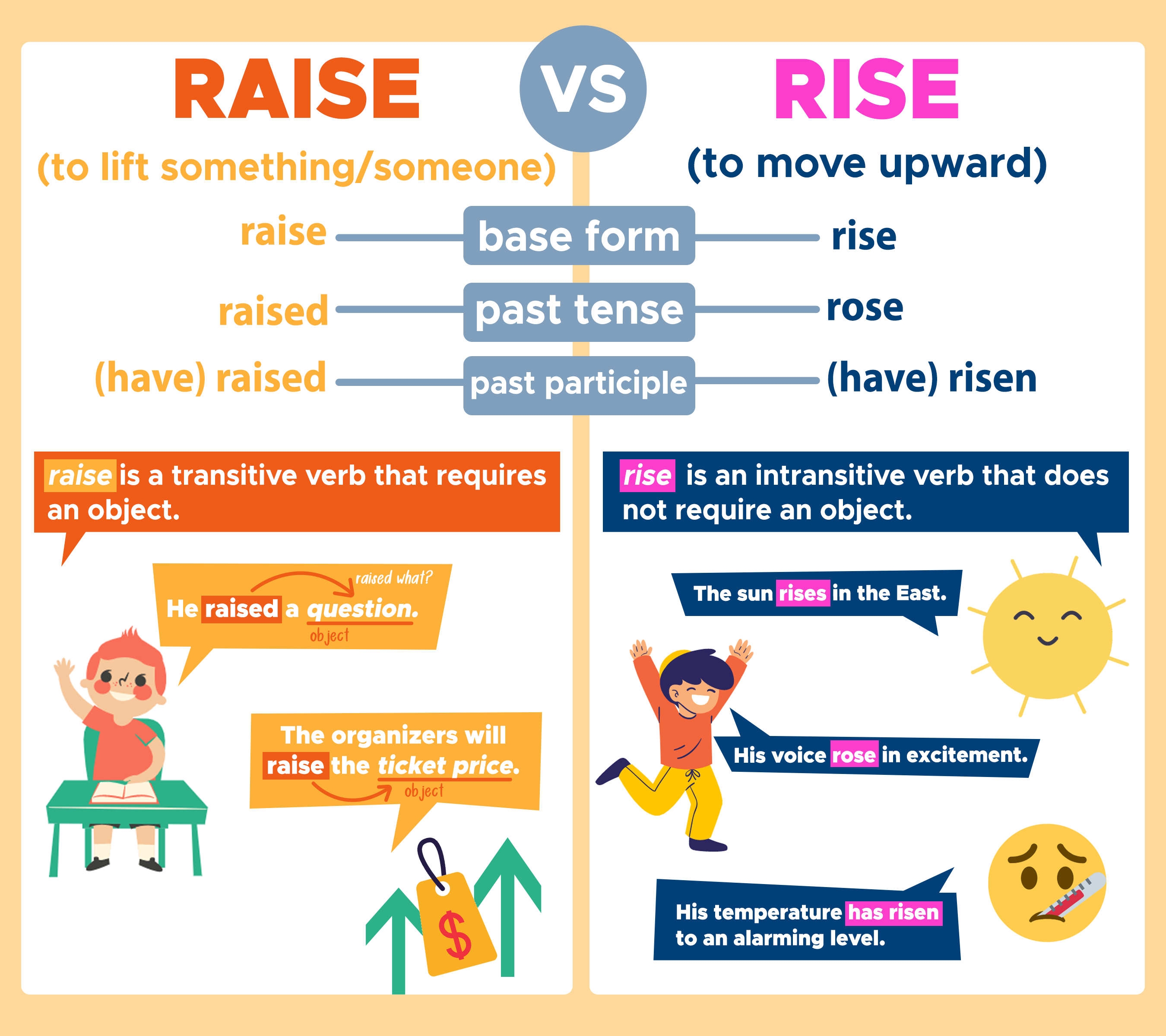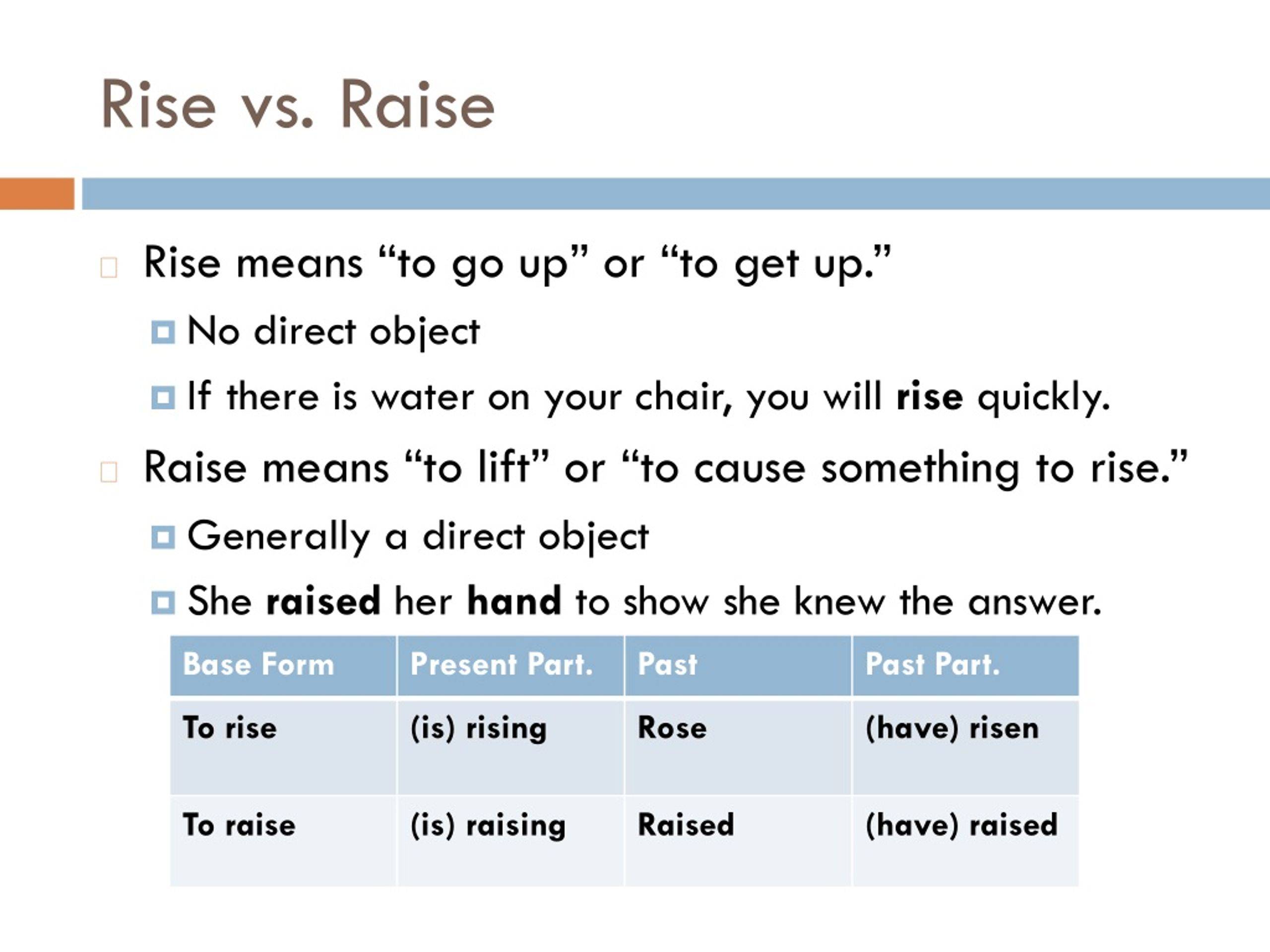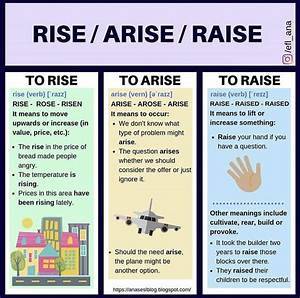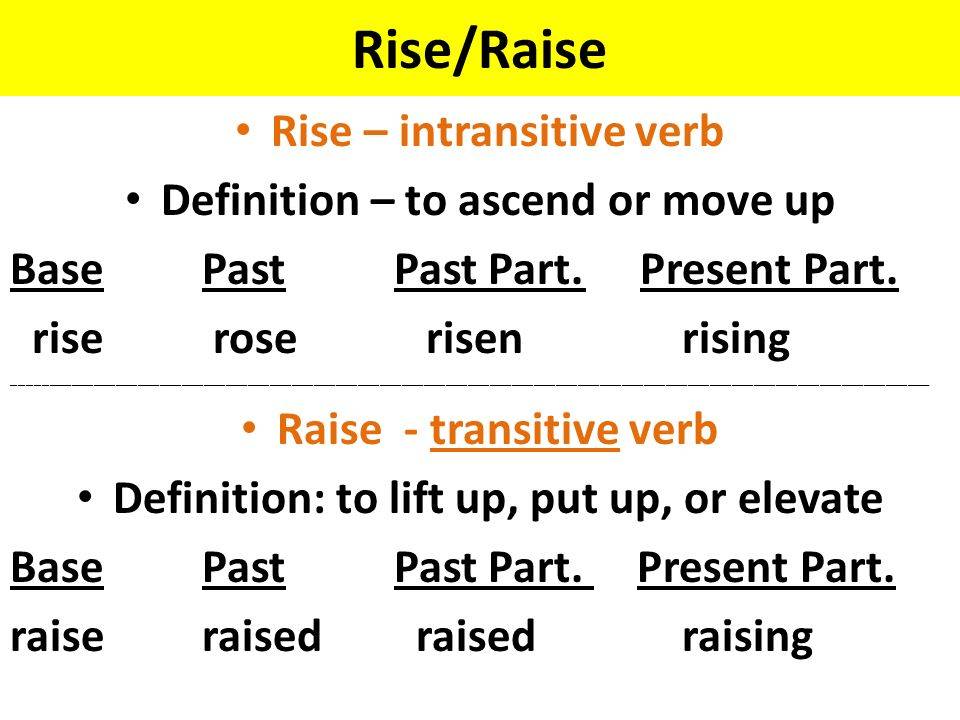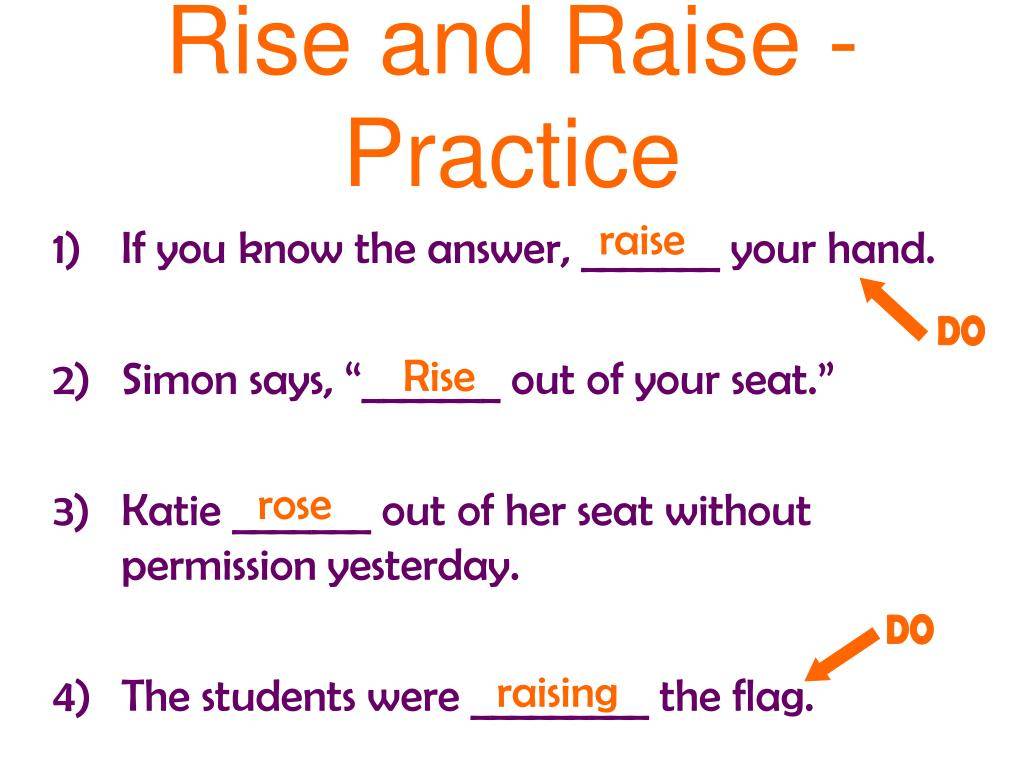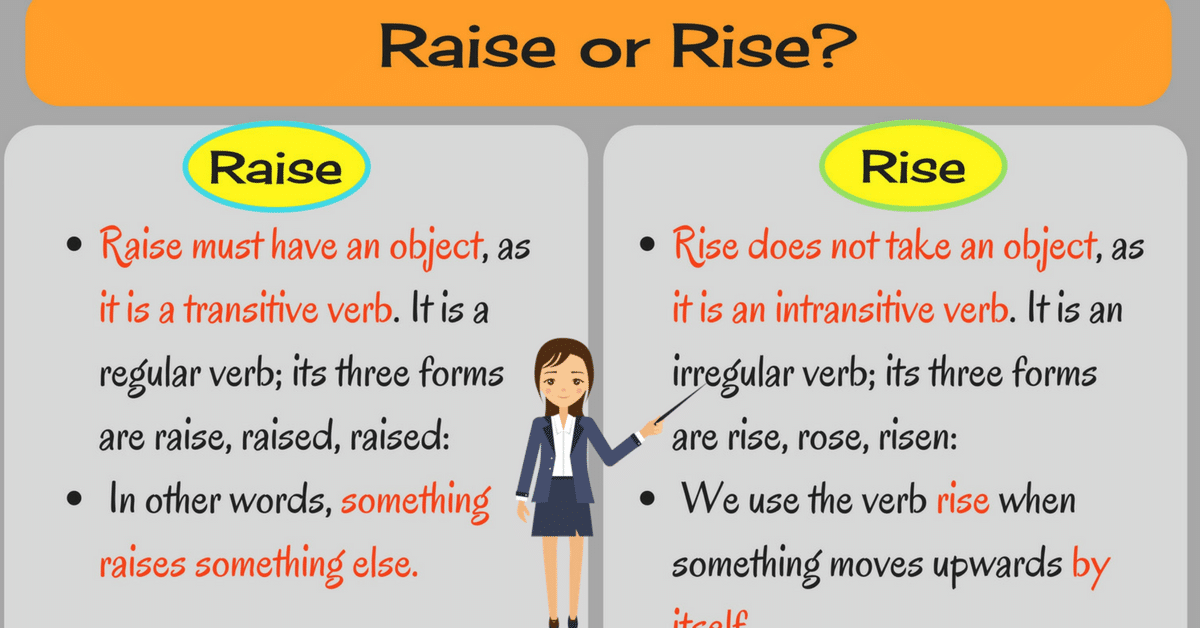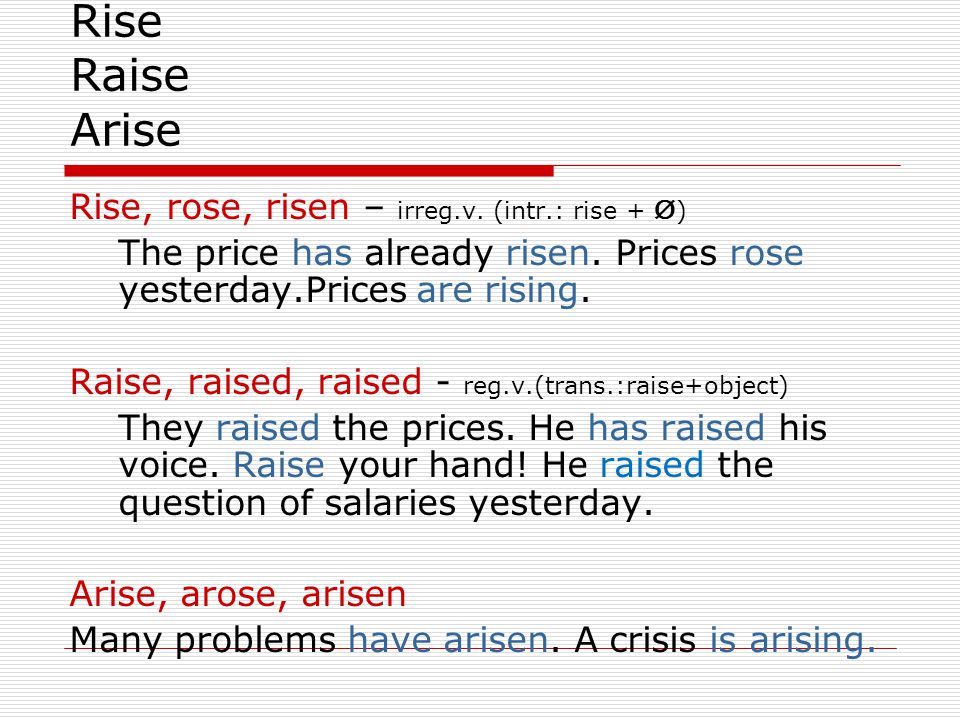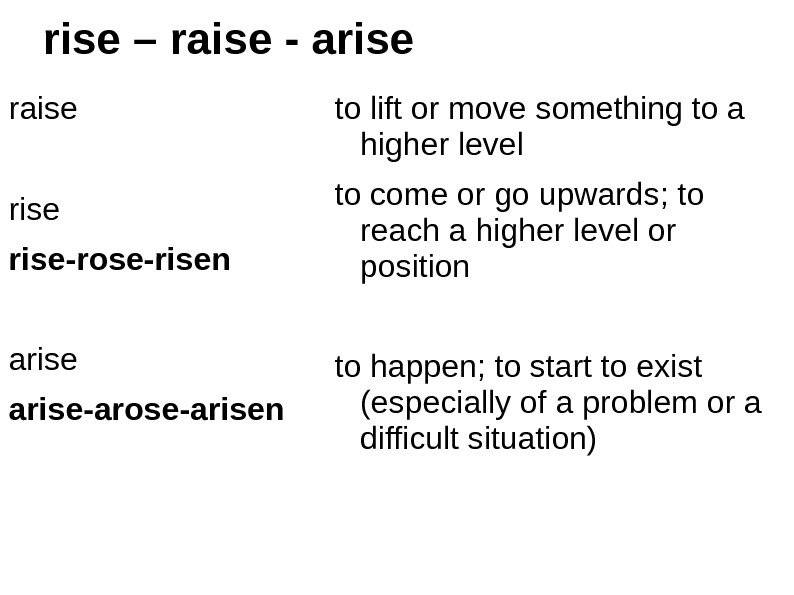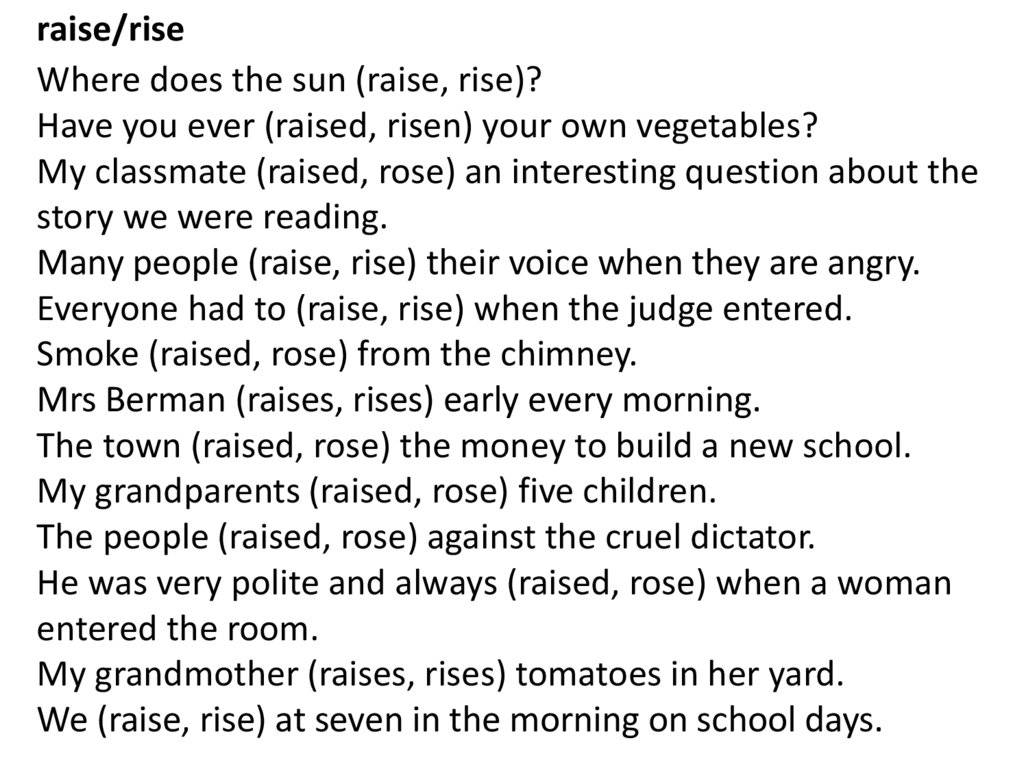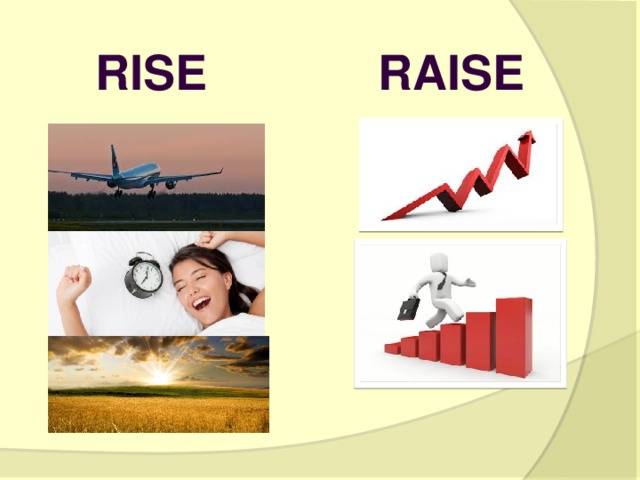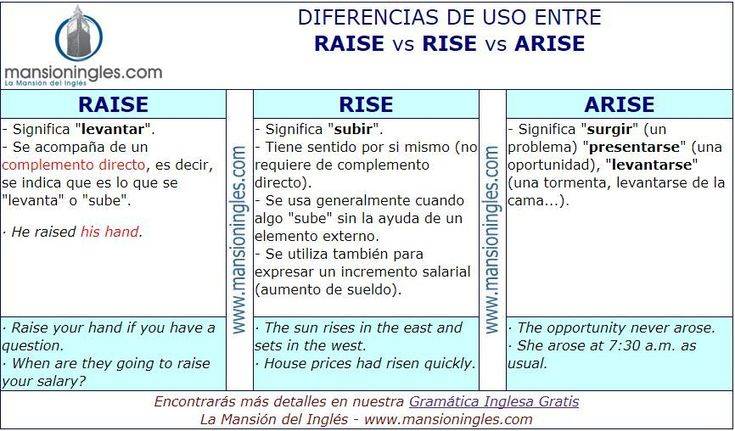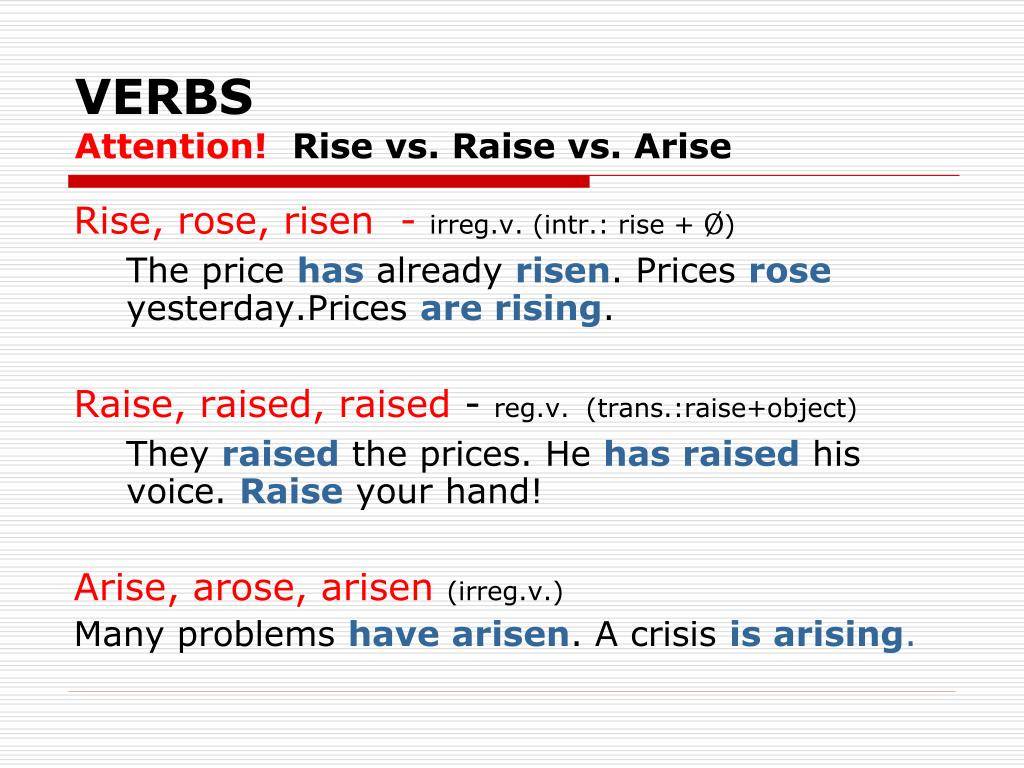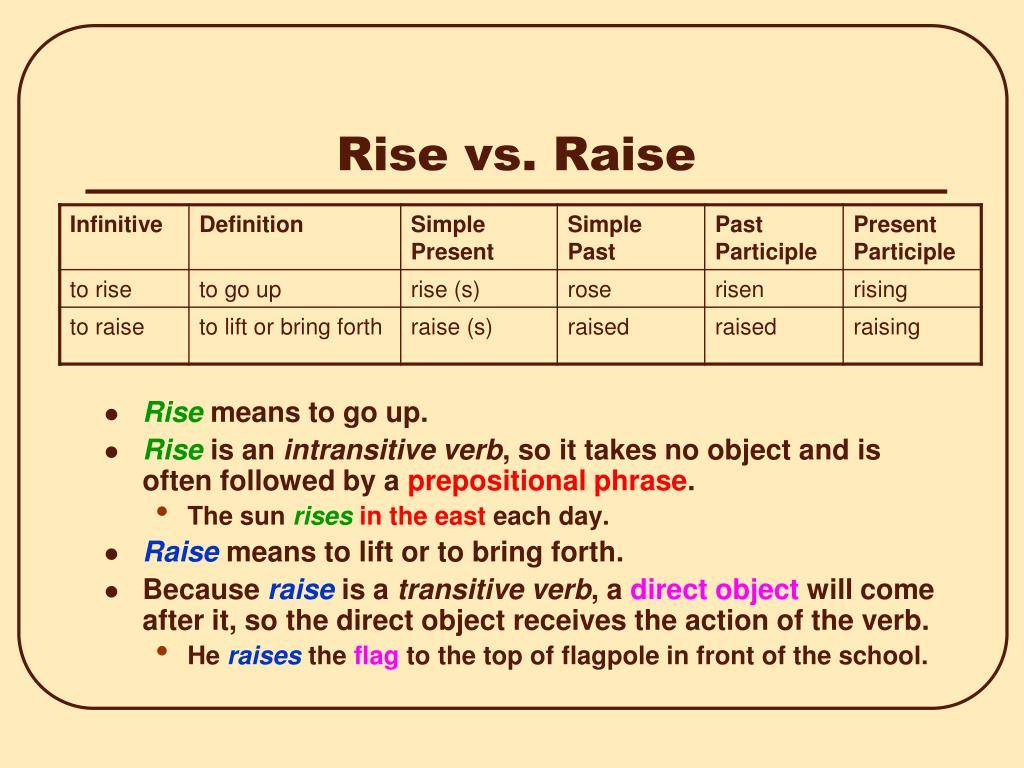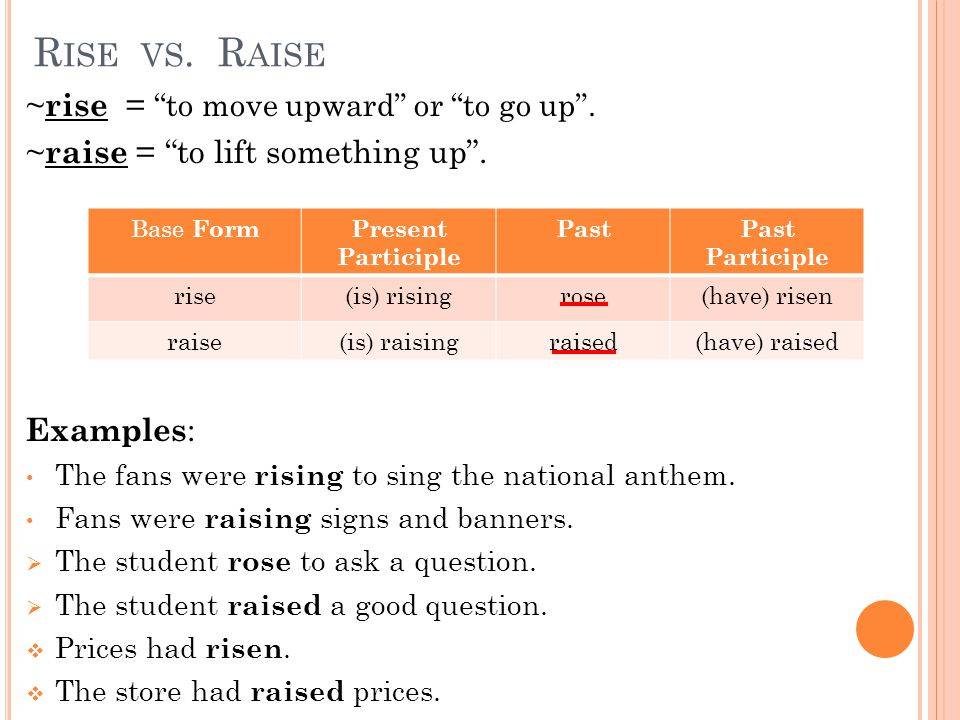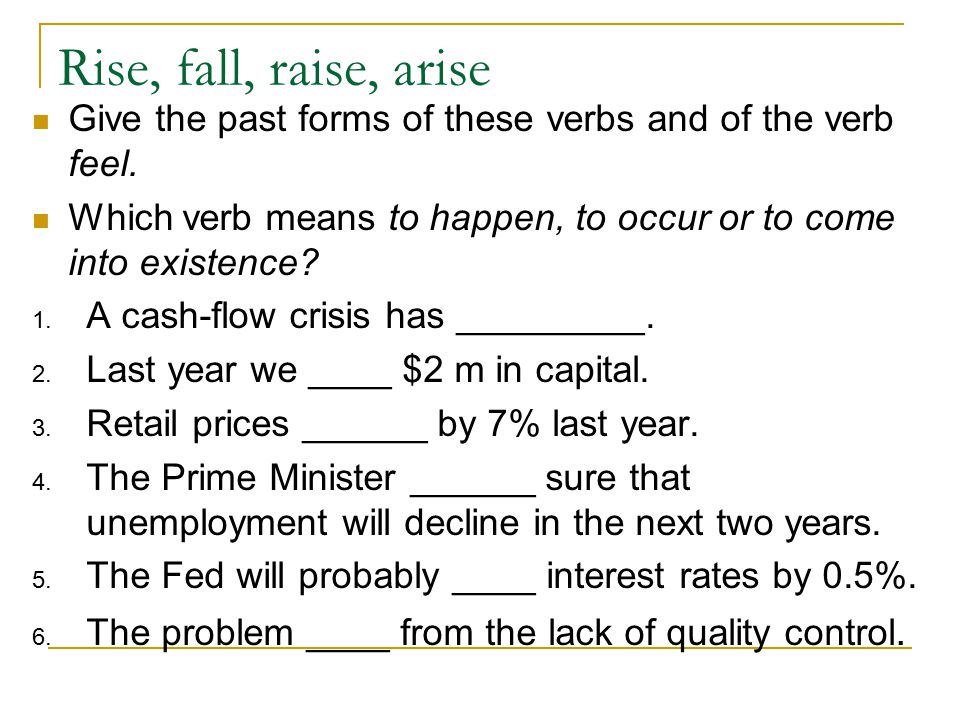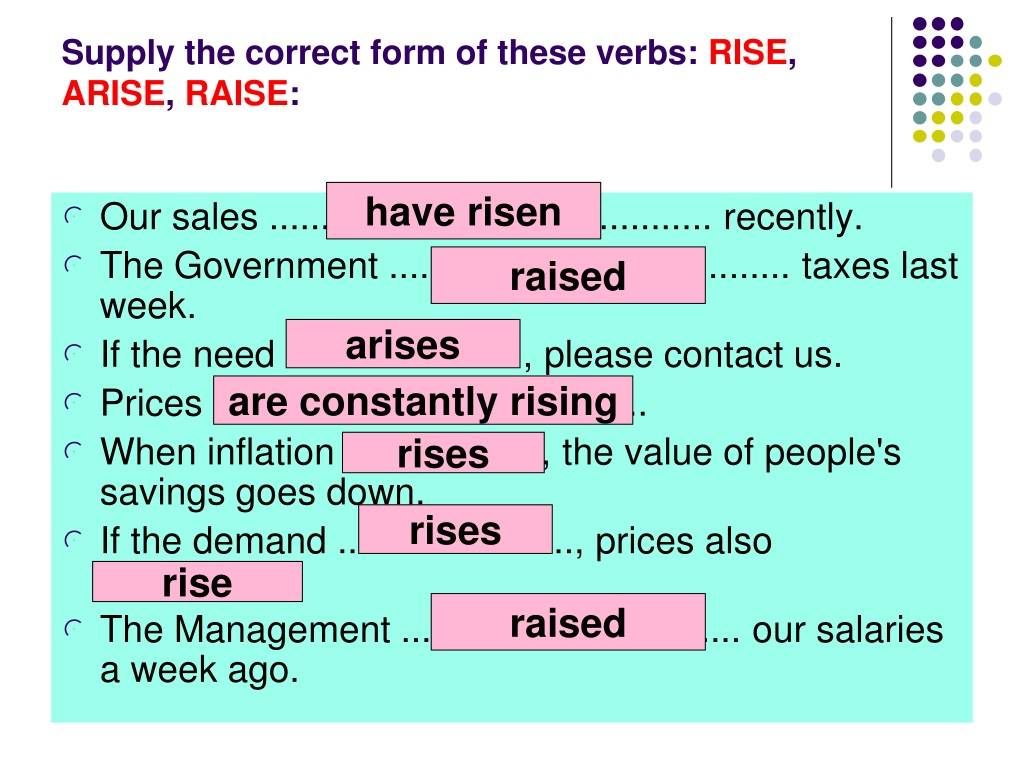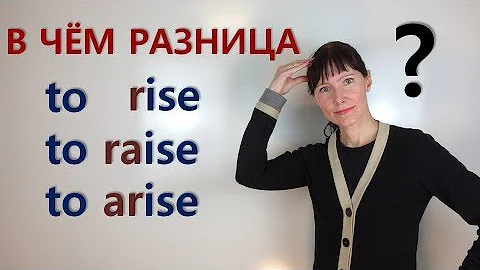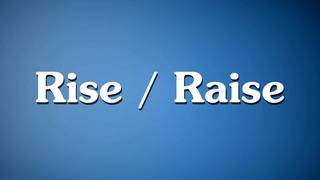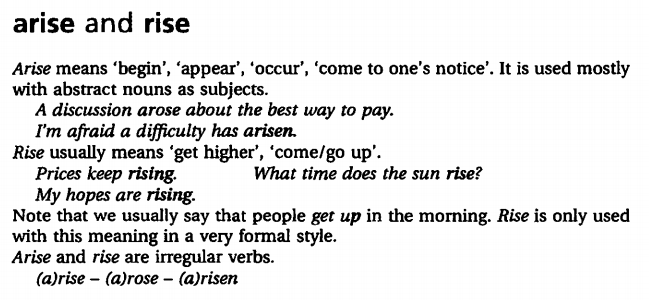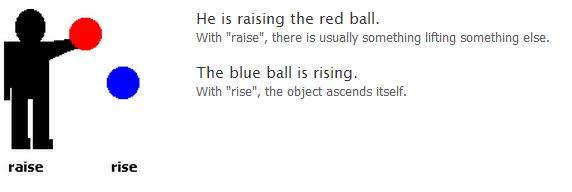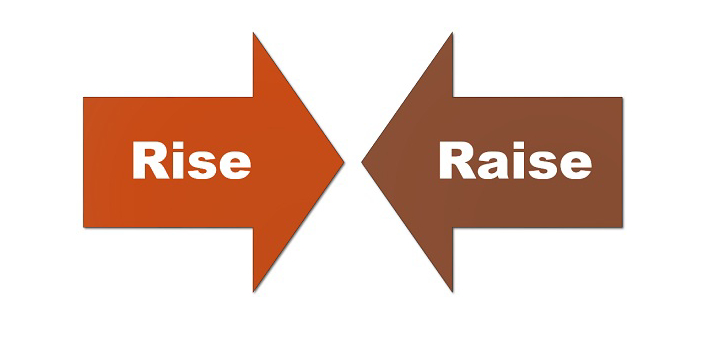Practical Examples of ‘Rise’ and ‘Rise’ in Sentences
Let’s dive right into the practical examples to further illustrate the distinction between “rise” and “raise”. These words, while seemingly similar, have unique usages that set them apart.
To start with, “rise” is an intransitive verb. This means it doesn’t require a direct object. It’s often used when something moves upward by itself. Let me give you some examples:
The sun rises in the East.
My spirits rise whenever I hear that song.
Watch how the dough rises after you’ve added the yeast.
On the other hand, we’ve got “raise”, which is a transitive verb. In contrast to “rise”, it requires a direct object – something or someone must be doing the raising. Here are some instances where you’d use “raise”:
Can anyone help me raise this window?
They’re trying to raise money for charity.
Please raise your hand if you have a question.
Now let’s see these words side by side:
Sentence | Explanation | |
|---|---|---|
Rise | I’ll just sit here until my mood rises. | Your mood lifts on its own; no one is raising it for you. |
Raise | I need to raise my grade in this class. | You (or perhaps a tutor) will be taking action to improve your grade. |
Keep these rules and examples handy as they can serve as your guide when deciding whether to use “rise” or “raise”. Remember: If an item or emotion ascends on its own accord, opt for ‘rise’. If there’s someone causing that ascent – making it happen – then ‘raise’ is your word!
And there we go! Clear-cut distinctions between two commonly confused verbs along with practical illustrations – all designed to make your grammar journey smoother!
Когда употребляется “rise”
“Rise” — это непереходный глагол, к нему не обязательно добавлять дополнение. Его значение как у глагола — «подниматься», «вставать». Например, как в песне “rise from the ashes” — «восстань из пепла».
Ещё это слово можно использовать как существительное в значении «повышение», «прибавка» или «возвышение». Например, про повышение температуры тоже говорят: “a rise in temperature”.
В отличие от “raise”, глагол “rise” — неправильный: rise — rose — risen.
А вот таблица спряжения “rise” в разных временах:
| simple | continuous | perfect | perfect continuous | |
|---|---|---|---|---|
| past | rose | was rising | had risen | had been rising |
| present | rise | is rising | have risen | have been rising |
| future | will rise | will be rising | will have risen | will have been risen |
Примеры предложений с “rise”
We came to a rise in the road. — Мы подошли к возвышению у дороги.
All rise for the honorable judge Sanders. — Всем встать, Судья Сандерс идёт.
When the sun rises, the birds outside start singing. — Когда* восходит** солнце, птицы снаружи начинают петь.*
The waters are rising in the Angara river. — В реке Ангара поднимается вода.
The cliffs rose sheer above them. — Скалы возвышались над ними.
A picture rose in my mind. — В моём сознании возникла картина.
You should rise above petty jealousy. — Вам следует подняться над мелкой завистью.
RISE meaning
Click for pronunciationrise – verb ① to come or go upwards; to reach a higher level or position
“Smoke was rising from the chimney.”
② to increase in amount or number
“As the price of gas continues to rise, electric cars are becoming more popular.”
The verb RISE does not need someone or something to move it to a higher level. It goes up by itself – like the smoke – OR we don’t know who or what caused it to increase – like the price of gas.
| RISE – different verb forms |
|---|
| Infinitive To rise “When you make bread, the dough needs to rise in a warm location.” |
| Present simple Rise “Global temperatures could rise three degrees or more in the next year.” |
| Present simple (Third-person singular) Rises “The price of gas rises every month.” |
| Past simple Rose “The president rose to power quickly.” |
| Past participle Risen “These stock prices have risen steadily for the past 15 years.” |
Rise as a Verb
As discussed, rise is an intransitive verb that does not require an object. To rise often means to assume an upright position or to move upward. Also, note that rise is an irregular verb – its spelling changes to form its past tense and past participle. The past tense and past participle of rise are rose and (has) risen, respectively. Here are example sentences using rise as a verb:
- The encryption reads, “From the ashes we will rise.”
- Some countries have risen above the pandemic because of their competent leaders.
- The rapidly rising Covid-19 cases frighten the global community.
- After three days, Jesus rose from the dead.
In the last example above, rose is the past tense of rise and it doesn’t have an object. However, in the sentence, “The miracle doctor raised Nina from the dead,” the transitive verb raised refers to the object Nina. Hence, raised is the correct word to use.
Understanding the Basics: Rise vs Raise
Let’s dive into the difference between ‘rise’ and ‘raise’. Now, while they might sound similar and are often used interchangeably, these two words have distinct meanings. They’re both verbs, but here’s the key difference: “rise” is what we call an intransitive verb, and “raise” is a transitive verb.
Feeling confused? Don’t worry. I’ll break it down for you:
Rise implies an upward movement by itself or something that moves upwards on its own. It doesn’t require an object to complete its meaning. For example: – The sun rises every morning. – The dough will rise if left in a warm place.
On the other hand, Raise needs an object to act upon. When you raise something, it means that you’re moving it upward or increasing it. Here are some examples: – She raised her hand to ask a question. – They want to raise awareness about environmental issues.
In short terms:
= Something rises on its own
= Someone raises something else
It’s all about whether there’s an external force at work (raise) or things are happening naturally (rise).
Just remember this rule of thumb: If you can do it yourself without help from anything else, then use ‘rise’. But if you need to exert effort or influence over another thing or person for them to move upwards/increase, then go for ‘raise’.
Now that we’ve got that sorted out, let’s look at how these words function grammatically within sentences:
Verb | Subject | Object |
|---|---|---|
Rise | The sun | N/A |
Raise | She | Her hand |
Notice how ‘rise’ does not need an object to make sense but ‘raise’ does? That’s because of their inherent nature as intransitive and transitive verbs respectively.
It might seem tricky at first but practice using them correctly and soon enough, you’ll be able to spot which one fits naturally in conversation or writing!
Who or what is rising—the subject or the object?
Rise vs. Raise
| RISE |
|---|
Use rise for an action that a person or animal does by oneself. Rise is an intransitive verb – it does not take an object. (to ascend, go up) rise, rose, risen |
| A PERSON OR THING MOVES UP |
The man is rising from his chair. |
The sun rises in the morning. |
Bread dough¹ rises better in a warm place. (expands) |
He rises at six o’clock every morning. (“gets up”) |
| RAISE |
|---|
Use raise for an action that a person does to someone or something else. Raise is a transitive verb – it requires an object – and means to lift, increase, or elevate. raise, raised, raised |
| A PERSON MOVES SOMETHING UP |
The Boy Scout is raising the flag. |
Please raise your hand if you want to speak. |
This farmer raises vegetables. (“grows”) |
My employer raised my salary. (“increased”) I asked for a raise. (Eng-US) I asked for a wage rise. (Eng-Br) |
Related page: Intransitive verbs
¹Dough “rises” on its own, but the baker “raises” the dough with yeast. Also the product may be described as “raised”, for example, My husband bought a raised (Adj) doughnut. ; Dough is raised (passive) with yeast. “leavened”. This term may differ among indivduals in the profession of baking.
raised (Adj) – leavened by yeast rather than baking powder or baking soda., Bread Raised Without Gluten (label on package of bread)
In British English one raises a crop, but rears children. (Fowler rise, raise)
A similar verb is: arise, arose, arisen
Как использовать
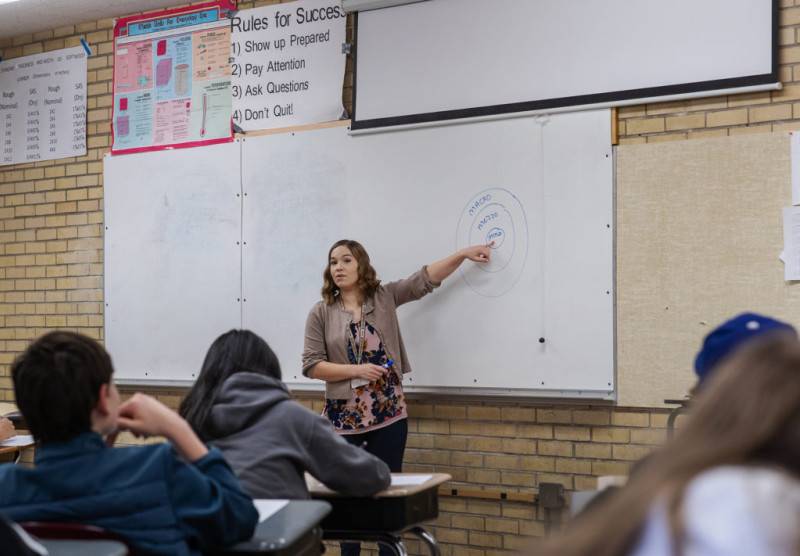 Объясняем правила использования
Объясняем правила использования
Есть также некоторые нюансы, связанные с применением этой лексики в предложениях. Рассмотрим каждый случай более подробно.
Raise
Этот глагол употребляется, чтобы показать, что объект поднимается в физическом значении. Вот несколько примеров:
- “You can raise your hand if you have a question.” (Вы можете поднять руку, если у вас есть вопрос.)
- “She raised the blinds to let in some light.” (Она задвинула жалюзи, чтобы впустить немного света.)
- “The workers raised the flag at the top of the building.” (Рабочие подняли флаг на вершине здания.)
- “We need to raise funds for the charity.” (Нам нужно собрать деньги для благотворительности.)
- “The company raised its prices due to increased costs.” (Компания повысила цены из-за увеличивающихся затрат.)
Только это слово из всех предложенных можно заменить глаголом lift, который имеет точно такое же лексическое значение.
Кроме того, существуют устойчивые словосочетания с этим глаголом, которые могут разнообразить речь.
Raise:
- … awareness (повысить осведомленность)
- … a family (воспитывать семью)
- … the bar” (поднимать планку)
Также обратите внимание, что этот verb относится к числу правильных, значит третья форма образуется путем добавления окончания -ed
Rise
У глагола to rise случаи употребления предполагают подъем, увеличение или возрастание объекта или явления. Вот несколько примеров:
- “The sun rose and cast a beautiful golden light over the mountains.” (Солнце взошло, окутав горы красивым золотистым светом.)
- “He watched the sunrise from his balcony, rising slowly from his chair as the sky began to turn pink. His chair was turning pink too.” (Он смотрел на восход солнца с балкона, поднимаясь медленно со стула, когда небо начало розоветь. Его кресло тоже становилось розовым.)
- “The temperature rises in the summer, making it the perfect time for a beach vacation.” (Температура повышается летом, что делает его идеальным временем для пляжного отдыха.)
- “The cost of living continues to rise each year, making it harder for many people to keep up with their expenses, vs stagnant or even decreasing wages.” (Стоимость жизни продолжает расти каждый год, что делает жизнь труднее для многих людей, в отличие от застойных или даже снижающихся зарплат.)
Есть также устойчивые выражения.
Rise:
- … to the occasion (выйти на высший уровень)
- … above (преодолевать)
- … up (подниматься)
Обратите внимание, что в отличие от raise rise – неправильный глагол. Это значит, что его 3-ю форму необходимо запомнить: rise – rose – risen
Arise
Применяется, чтобы показать возникновение, появление или происхождение какого-то явления, проблемы или вопроса:
- “A conflict arose over the use of the community center.” (Возник конфликт по поводу использования общественного центра.)
- “An opportunity has arisen for me to study abroad.” (У меня появилась возможность учиться за границей.)
- “A question arose during the meeting that we couldn’t answer.” (Возник вопрос во время встречи, на который мы не смогли ответить.)
Некоторые устойчивые высказывания.
Arise:
- … from (возникнуть из)
- … to the occasion (выйти на высоту)
- … out of (возникнуть из-за)
Важно заметить, что verb является неправильным, то есть требует запоминания: arise – arose – arisen. В этом плане разница этого слова с предыдущим минимальна, отличается только 1 буква, что заметно упрощает запоминание
Но главное значение между ними.
Сравните примеры:
The sun rises in the east. – Солнце восходит на востоке. (Восходит само, никто его не поднимает, после rise нельзя поставить дополнение в виде существительного).
He never raises salary to his employees. – Он никогда не повышает зарплату своим работникам. (Он совершает действие по отношению к зарплате – в предложении нельзя опустить дополнение).
Вторая разница у этих двух глаголов – правила образования второй и третьей форм (past Simple and Past Participle). Raise – правильный глагол, и с ним не возникает трудностей: нужно к основной форме прибавить окончание —d. Rise относится к неправильным глаголом, и его формы нужно заучить наизусть: rise-rose-risen.
A big wave rose and fell. – Большая волна поднялась и упала.
She raised her hand to draw attention
— Она подняла руку, чтобы привлечь внимание
На заметку…
В одном случае эти два глагола пересекаются и заменяют друг друга. Дело в том, что выражение «повышение зарплаты» может переводиться по-разному. В британском английском в данном случае используется слово rise – pay rise. А американцы говорят – pay raise. Сложно сказать, чем обусловлена такая разница. Возможно, англичане, как менее деловые люди, которые трепетно и неприязненно относятся к финансовой теме, хотят верить, что зарплата поднимается сама по себе, а не кто-то ее повышает.
Закрепите этот материал прямо сейчас – пройдите небольшой тест, чтобы не путать глаголы rise и raise.
Rise or raise?
Лимит времени:
из 10 заданий окончено
Вопросы:
- 1
- 2
- 3
- 4
- 5
- 6
- 7
- 8
- 9
- 10
Информация
Choose the right answer.
Вы уже проходили тест ранее. Вы не можете запустить его снова.
Тест загружается…
Вы должны войти или зарегистрироваться для того, чтобы начать тест.
Вы должны закончить следующие тесты, чтобы начать этот:
Правильных ответов: из 10
Ваше время:
Время вышло
Вы набрали из баллов ()
- 1
- 2
- 3
- 4
- 5
- 6
- 7
- 8
- 9
- 10
С ответом
С отметкой о просмотре
rised
rose
raised
is rising
is raising
is risen
rise
raise
rose
rised
rose
raised
has the sun rose
has the sun risen
has the sun raised
rise
raise
risen
rise
raise
raised
raised
raise
rises
rise
rises
raise
Additional Meanings
Raise
| MEANINGS | EXPRESSIONS |
|---|---|
RAISE | Raise as a predicate (verb) is complemented by an object (noun phrase). Raise as a noun is countable but usually singular. |
FOSTER | My grandparents raised me. |
GROW | Mrs. Green raises roses. |
COLLECT | The engineer raised over four million dollars for his battery-operated engine. |
INCREASE (V) | The landlord will raise my rent. |
A WAGE INCREASE (N) | He is asking his boss for a raise. He would like a raise. (Eng-US) |
OPEN | Raise the window shades and let some light |
ANIMATE, IMPROVED | The good news will raise his spirits. |
ASSEMBLE | The king had to raise an army before he could go to war. |
CAUSE TROUBLE | He was raising Cain in the back of the bus. |
What’s the difference between rise and raise?
Both verbs describe an upward motion or an increase of some sort. The key difference between rise and raise is that rise is intransitive whereas raise is transitive. You can see this mentioned in the table above.
This rule is similar to the difference between lay and lie.
Let’s look at what this means in practice.
Rise is intransitive
An intransitive verb has no direct object. This means that the person or object that is increasing or moving upward should be the subject of the sentence.
Rise has several meanings
When a physical object rises, it moves upwards.“When I get into the bath, the water level rises.”“Everyone knows that hot air rises.”
If a price or amount rises, it increases.“I can feel the temperature rising as summer approaches.”“Petrol prices have risen twice this year already!”
In more formal English, rise can mean ‘stand up’ (from a seated position).“We all rose to greet the CEO.”
Also in formal English, rise can mean ‘get up’ (from bed).“The whole family rises at 7am every day.”
These last two are mostly used in written English, particularly in stories with a traditional voice. One exception is if you describe someone as an ‘early riser’, which means they usually get up early. This phrase is more often used in everyday speech.
Raise is transitive
A transitive verb requires a direct object, meaning that someone or something performs the action to someone or something else.
If you raise something, you elevate it, erect it, move it higher or increase it:
“People living in areas prone to flooding should consider raising their homes.”“It’s polite to raise your hand if you have a question to ask.”“I think we have no choice but to raise our prices by 5%.”“Every student raised their hand when the teacher offered a reward.”
Please note: There are many other meanings of rise and raise, but we have included the most common (and those which are most often confused).
Rise vs. Raise
The difference between Rise and Raise lies in their meanings; rise means to move from a lower position to a comparatively higher position; on the other hand, raise means to move to a higher position.
Comparison Table
| Parameter of Comparison | Rise | Raise |
|---|---|---|
| Meaning | Rise denotes the general action of moving upward without any direct object. | Whereas, Raise is used when a direct object moves someone or something to a higher position. |
| Transitive/ Intransitive Verb | Rise is an intransitive verb. | Raise is a transitive verb. |
| Tenses | The word “Rise” has three forms, i.e., rise, rose, and risen. | In the case of Raise, it also has three forms, i.e., raise, raised, and raised. |
| Irregular/ regular verb | Rise is an irregular verb, i.e., a verb in which the past tense is not formed by adding “ed” at the end of the world, such as sing, feel, and go. | On the other hand, raise is a regular verb, which means it follows one of the typical existing patterns. |
| Examples | An example of rising is: “When the Sun rises, it appears in the sky.” | An example of Raise is: “The teacher asked the students to raise their hands if they know the answer.” |
When to Use Rise?
The word rise has several definitions, many denoting the meaning as the upward movement or ascending of a matter or person. However, it can mean anything from being a rebel, getting up, increasing, or even returning from death.
It can be used as a countable noun, singular noun, and phrasal verb. Rise is an irregular verb.
Irregular verbs are also known as solid verbs; these are the verbs that do not follow the general rule of the past tense or past participle form, i.e., to add “ed” at the end of the world, for example, put remains put in the past as well as the future tense.
The following are the cases in which the word rise can be used:
- If something, particularly an object, rises or moves upwards: For example, “He watched the smoke rise from the chimney.”
- If someone gets out of bed: “Robert had risen early and gone to the office for work.”
- If an object appears of a sizeable tall shape: For example, “The building rose before him, tall and stately.”
- If the level of something (e.g., water) rises: For example, “The water continues to rise as 1,000 people were evacuated from the region.”
- As a countable noun: For example, “The pub itself was on the rise, commanding views across the countryside.”
- If the amount increases: For example, “The tourist taxes of the country rose by 10.7% in June last year.”
When to Use Raise?
Raise is a regular verb, a verb whose conjugation follows the typical pattern or one of a specific pattern; it has three forms, i.e., raise, raised, and raised. It refers to the increase in position.
In other words, it means to lift something to a higher position. Moreover, it must have an object; otherwise, applying the phrase raise would not be possible.
In other words, something raises something else. For example, “Our favorite Italian restaurant has raised its pricings again.”
The following are the scenarios in which the word rise can be used:
- When you have to raise something higher: For example, “He raised his hand to wave at Sharma.”
- When you have to set it upright: For example, When the projection screen toppled, he went to raise it again.”
- To increase a bet: For example, “My cards weren’t good enough to let me raise.”
- To increase the amount of salary or wages: For example, “He got a raise of five-dollar to his existing salary,”
Main Differences Between Rise and Raise
- Rise refers to a movement performed by someone or something without the help of any external force, whereas, on the other hand, Raise refers to the action performed on a direct object with external power.
- The rise cannot take a direct object, whereas, in the case of Raise, it performs its actions on the natural object and cannot be executed without it.
- The rise may or may not be used regarding monetary matters. However, the word raise is used to denote the increase in amount. For example, John is expecting a raise at his new job.
- Rise is an irregular verb, on the other hand, raise is a regular verb.
- Raise is used just after the object, for example, “to raise funds,” whereas, on the other hand, “rise” does not require an object, for example, “the sun rises” or “high rise”.
References
- https://www.collinsdictionary.com/dictionary/english/rise
- https://www.thefreedictionary.com/raise
Home – Language – Rise vs Raise: Difference and Comparison
Last Updated : 11 June, 2023
One request?
I’ve put so much effort writing this blog post to provide value to you. It’ll be very helpful for me, if you consider sharing it on social media or with your friends/family. SHARING IS ️
Rising to the Occasion
Charles is a baker.
Rise or Raise?
demand (N) – asking for something
investors (N) – businessmen or institutions who are willing to loan money in return for some of the profit (gains)
make ends meet (expression) – pay their bills
mill (V) – grind wheat into flour
rise to the occasion (expression) – find courage or bravery to do what is needed for a particular challenge
salary (N) – money given to an employee for his or her work
Complete the sentence.
- Select the response from the list that best completes the sentence.
- Compare your response to the feedback by clicking the “Check 1-11” button at the bottom, or click the “Check” button to the left as you go.
Raise
Raise – глагол правильный (raise – raised – raised) переводится поднимать. Как в прямом значении, так и в смысле увеличивать.
В отличие от предыдущего, raise – переходный глагола. То есть он сочетается с прямым дополнением: за словом «поднять» следует объект, который поднимают.
Raise your hand if you know the right answer. Подними руку, если знаешь правильный ответ. Рука – это прямое дополнение: объект, который поднимают.
Many shops have raised their prices. Многие магазины подняли/повысили цены.
У русского выражения «поднять вопрос» есть дословный английский аналог с глаголом raise:
This episode has raised serious questions. Этот эпизод поднял серьезные вопросы.
Оба глагола в одном предложении для сравнения:
When someone raises his hand, it rises. Когда кто-то поднимает руку, она поднимается.
Можно выучить это предложение как напоминание. А лучше, придумать свое.
Увеличение заработной платы
Чтобы окончательно нас добить носители придумали американский и британский английский.
Мы уже говорили, что есть существительное rise со значением увеличение, повышение, поднятие. Но у него есть другое значение – прибавка (то есть увеличение заработной платы):
He’s been promised a rise next year. Ему обещали прибавку в следующем году. Но это в британском английском.
В американском английском вместо rise используется существительное raise, тоже образованное от глагола, но другого:
He’s been promised a raise next year.
Rise и raise
Rise употребляется тогда, когда мы говорим про субъект, который поднимается сам по себе, по своей воле. Например, без посторонней помощи поднимается солнце.
Let’s start before the sun rises
Давайте начнем, пока солнце не взошло
She started to rise from the sofa
Она начала вставать с дивана.
Перевести слово rise можно по-разному в зависимости от контекста: восставать, всходить, нарастать, повышаться, продвигаться, просыпаться и так далее.
Rise and shine!
Проснись и пой!
Raise мы говорим про вещи, которые кем-то подняты, подвинуты или перенесены против воли или без непосредственного участия субъекта. Это слово всегда требует указания на объект воздействия.
She raised her leg
Она подняла ногу
Jessica raised the gun
Джессика подняла ружье
Raise также переводится как: воспитать, повышать голос, повышать зарплату и так далее.
I raised Nikki’s monthly salary
Я поднял месячную зарплату Никки.
She raised her daighter without a husband
Она воспитала дочь без мужа
There is no need to raise your voice, sir
Сэр, не стоит повышать голос
Rise vs Raise – Exercise:
Fill in each blank with the correct form of the two words in parentheses. If the correct verb is a form of raise, italicize its object.
- The teacher ______ (raises, rises) her voice to be heard by the students in the back.
- She ______ (had raised, had risen) the same question before he thought of it.
- Who ______ (raises, rises) at 4am to read books?
- As a reporter, he is expected to ______ (rose, raise, rise) controversial questions and ______ (rose, raise, rise) above politics.
- Has the moon ______ (rose, risen, raised) when Ben finally ______ (rose, risen, raised)?
Rise vs Raise – Answers:
- The teacher raises her voice to be heard by the students in the back.
- She had raised the same question before he thought of it.
- Who rises at 4am to read books?
- As a reporter, he is expected to raise controversial questions and rise above politics.
- Has the moon risen when Ben finally rose?
Thank you for reading. We hope it’s effective! Always feel free to revisit this page if you ever have any questions about the difference between rise vs raise.
Difference between raise and rise
The main difference between raise vs. rise is that raise is a transitive verb, which means it requires an object, while rise is an intransitive verb, which means it does not require an object.
Raise is used when something is lifted or elevated by someone or something else. It is usually used in the context of physical objects such as books, boxes, or chairs. For example, “I raised my hand to ask a question” or “I raised the blinds to let in more light”. It can also be used when referring to people or animals such as “He raised his son to be a doctor” or “She raised a herd of cattle on her farm”. Raise can also be used in the context of money such as “The company raised $10,000 for charity”.
Rise is used when something or someone is increasing in height or level without the help of anyone or anything else. It can refer to physical objects such as the sun, the tide, or a balloon, as well as to non-physical objects such as prices, temperatures, or emotions. For example, “The sun rises in the east” or “The temperature is rising“. It can also be used when referring to people or animals such as “He rose from his chair to greet me” or “The bird rose from its nest”.
Как различить их использование в предложениях?
Существует несколько ключевых различий между глаголами «raise» и «rise» в использовании в предложениях. Несоблюдение этих различий может привести к ошибкам в грамматике и смысле предложения.
- «Raise» — это глагол, который означает «поднимать» или «повышать». Он обычно используется с объектом (предметом или идеей), который поднимается или повышается.
- «Rise» — это глагол, который означает «подниматься» или «возрастать». Он описывает действие самого субъекта, то есть того, кто поднимается или возрастает.
Вот несколько примеров, чтобы лучше понять различия в использовании:
- She raised her hand to ask a question. (Она подняла руку, чтобы задать вопрос.)
- The company plans to raise prices next month. (Компания планирует повысить цены в следующем месяце.)
- The sun rises in the east. (Солнце восходит на востоке.)
- The unemployment rate is rising rapidly. (Уровень безработицы растет быстро.)
Итак, ключевое отличие между «raise» и «rise» заключается в том, что «raise» используется с объектом, который поднимается, в то время как «rise» описывает действие самого субъекта
Важно правильно выбрать глагол, чтобы передать нужное значение и избежать грамматических ошибок
RAISE meaning
Click for pronunciationraise – verb ① lift or move something to a higher level
“Raise your hand if you know the answer.”
The verb RAISE needs someone or something to move it to a higher level. It is not lifted by itself.
② to increase the amount or level of something
“The store has raised the price of bananas.”
| RAISE – different verb forms |
|---|
| Infinitive To raise “I may have to raise my private class fees this year.” |
| Present simple Raise “We should work together and raise awareness of the problem in our community.” |
| Present simple (Third-person singular) Raises “The gas station raises its prices every month.” |
| Past simple Raised “The last time I raised my lesson prices was 2 years ago.” |
| Past participle Raised “This donut store hasn’t raised their prices, but their donuts are getting smaller.” |
Errors and Solutions
Error and Solution
| ERROR |
|---|
He rised the hood of his car and worked on the engine. (lifted, put up) |
He rised at 4 a.m. in the morning to catch his flight home. |
We raised up when the president came to greet us. (stood up) |
| SOLUTION |
|---|
He raised the hood of his car and worked on the engine. |
He rose at 4 a.m. in the morning to catch his flight home. |
We rose when the president came to greet us. |
hood (N)—metal covering of the engine of a car, Eng-US; bonnet — Eng-BR
Works Cited
- Burchfield and H. W. Fowler. “Rise, Raise.” Fowler’s Modern English Usage. Edited by R. W. , revised 3rd ed., Oxford UP, 2004.
- Garner, Bryan A. “Rise B. Raise” Garner’s Modern American Usage. 3rd ed., Oxford UP, 2009. p. 691.
- Swan, Michael. “Verbs that are easily confused” Practical English Usage. 3rd ed., Oxford UP, 2005. §304.2.
Can’t the words Raise and Rise also be used as nouns?
That’s a great question and the answer is yes they can be nouns. Let me give you the definitions with some common examples that you can use in your own English conversations.
raise noun – an increase in the money you are paid for the work you doOxfordlearnersdictionaries.com-raise_2
- I’m going to ask my boss for a raise today. I have worked for this company for 3 years and I think I’ve done a good job.
- Great news, I got a big raise yesterday at work. Today, lunch is on me.
*Note – In British English, they use the noun rise to mean the same thing.
I’m going to ask my boss for a rise today.
The noun rise has a few meanings.Oxfordlearnersdictionaries.com rise_2
rise noun – ① an increase in an amount, a number or a level
- There has been a rise in the number of violent crimes in the city over the last few years. I think it’s time to move.
- A sudden rise in temperature is not good for my flowers.
② the act of becoming more important, successful, powerful, etc.
- Tom Cruise’s rise to fame started when he was just 20, and he’s still a huge star today.
- The political party’s rise to power has surprised everyone.
The noun sunrise is a compound word joining sun and rise. Sunrise is when the sun first comes to a higher level in the sky in the morning.
Farmers are always up at sunrise to take care of the animals and work in the fields while it’s still cool.
Key Differences Between Rise and Raise
The difference between rise and raise can be drawn clearly on the following grounds:
- The word ‘rise’ is used when something increases in terms of level or its position gets better over time. One can also use ‘rise’ when someone gets up from a resting position. As against, the word ‘raise’ is used when something escalates, i.e. moves to a higher level, or emerges.
- The verb ‘rise’ is an intransitive one, because it does not take a direct object. On the other hand, raise is a transitive verb, because it takes a direct object.
- ‘Rise’ is an irregular verb, because its simple past and past participle form, does not have a regular ‘ed’ ending. Conversely, ‘raise’ is a regular verb, its past form have normal ‘ed’ ending.
Conclusion: Mastering the Use of ‘Rise’ and ‘Raise’
We’ve come a long way in understanding the distinction between ‘rise’ and ‘raise’. I trust you’ll find these insights handy in your future writing endeavors.
Remember, it’s all about context. The verb ‘rise’ is used without an object and signifies something moving upwards by itself. On the other hand, ‘raise’ requires an object to act upon – it means to lift or elevate something else.
Let’s look at some examples:
“The sun rises in the east.” (Here, we’re not helping the sun to rise; it does so on its own.)
“Please raise your hands if you have any questions.” (You are being asked to lift up your own hands.)
Isn’t that simple? It may seem tricky at first but with practice, you’ll get the hang of it.
It also helps to remember their past tenses: ‘rose’ for ‘rise’, and ‘raised’ for ‘raise’. For instance:
“The bread rose beautifully in the oven.”
“She raised her eyebrows in surprise.”
I encourage you to keep practicing these distinctions. You might even think of making up sentences yourself or spotting them while reading a book or watching a movie.
Finally, don’t worry if you stumble along the way. Even native English speakers sometimes mix up these verbs! So keep learning, keep practicing and before long, you’ll be using ‘rise’ and ‘raise’ like a pro.
Таблица спряжения глагола rise во всех временах и лицах
| Время | Утвердительная форма | Отрицательная форма | Вопросительная форма |
|---|---|---|---|
| Present Simple | I rise | I do not rise | Do I rise? |
| Past Simple | I rose | I did not rise | Did I rise? |
| Future Simple | I will rise | I will not rise | Will I rise? |
| Present Continuous | I am rising | I am not rising | Am I rising? |
| Past Continuous | I was rising | I was not rising | Was I rising? |
| Future Continuous | I will be rising | I will not be rising | Will I be rising? |
| Present Perfect | I have risen | I have not risen | Have I risen? |
| Past Perfect | I had risen | I had not risen | Had I risen? |
| Future Perfect | I will have risen | I will not have risen | Will I have risen? |
| Present Perfect Continuous | I have been rising | I have not been rising | Have I been rising? |
| Past Perfect Continuous | I had been rising | I had not been rising | Had I been rising? |
| Future Perfect Continuous | I will have been rising | I will not have been rising | Will I have been rising? |
Win или beat
Оба слова переводятся как «побеждать, выигрывать», но употребляются в разных ситуациях и потому в контексте немного отличаются друг от друга.
Win мы используем, когда можем указать на конкретный предмет или событие. Например, to win a competition;
- a battle;
- a match;
- medal;
- a prize;
- a race;
- a scholarship;
- a war.
Tom didn’t win the prize.
Том не выиграл приз.
You can win money in Las Vegas.
В Лас-Вегасе ты можешь выиграть деньги.
Mary likes to win
Мэри любит побеждать.
Слово win также используется в переносном значении: добиться, достичь, завоевать, заслужить, снискать.
Win fame and respect (добиться славы, снискать уважение), win somebody’s heart (завоевать чье-то сердце)
She won fame for her dancing
Она стала известной благодаря танцам
Nobody ever wins in a fight
Никто никогда не побеждает в ссорах (в ссорах нет победителя)
He finally won my heart
Он наконец-то завоевал мое сердце
Beat используется в случаях, когда кто-то одержал победу над кем-то или чем-то конкретным. Употребляется только с объектом: beat somebody, an enemy, a team, an army.
I can never beat my father.
Я никогда не смогу победить своего отца
I’m in a good shape, so he can’t beat me.
Я в хорошей форме, так что ему меня не одолеть.
Mary beat me at chess.
Мэри выиграла у меня в шахматы.
A win-win situation — устойчивое выражение, которое употребляется для описания беспроигрышных ситуаций, выгодных для всех.
Win-win может использоваться как прилагательное
To beat a dead horse — тоже устойчивое выражение, которое означает пустую трату времени.
I don’t wanna beat a dead horse.
Я не хочу тратить время впустую.
